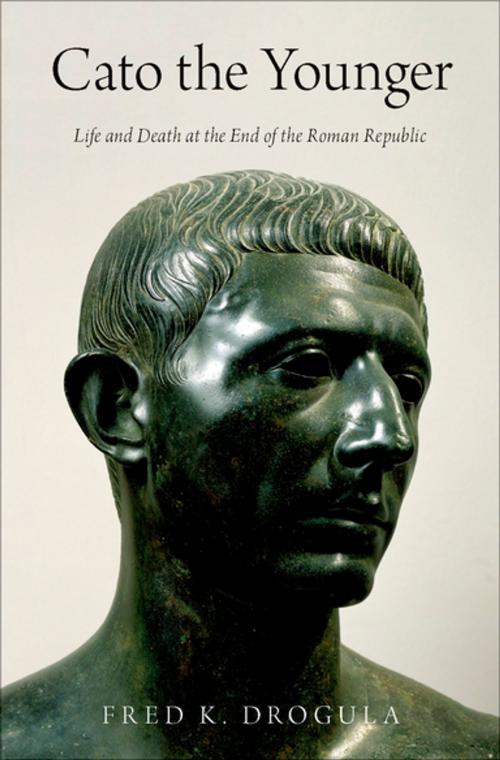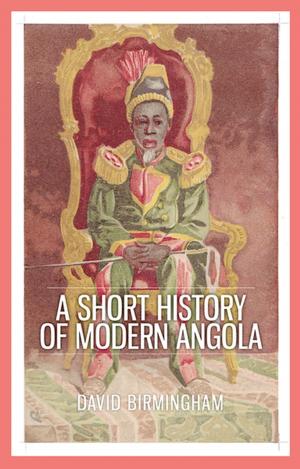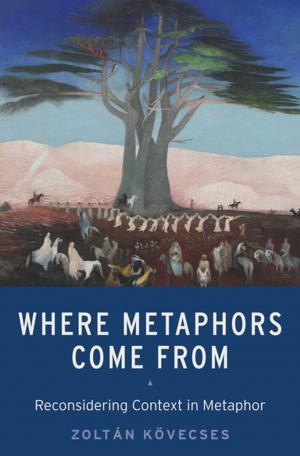Cato the Younger
Life and Death at the End of the Roman Republic
Nonfiction, History, Ancient History, Rome| Author: | Fred K. Drogula | ISBN: | 9780190869045 |
| Publisher: | Oxford University Press | Publication: | April 24, 2019 |
| Imprint: | Oxford University Press | Language: | English |
| Author: | Fred K. Drogula |
| ISBN: | 9780190869045 |
| Publisher: | Oxford University Press |
| Publication: | April 24, 2019 |
| Imprint: | Oxford University Press |
| Language: | English |
Marcus Porcius Cato ("the Younger") is most famous for being Julius Caesar's nemesis. His sustained antagonism was in large part responsible for pushing the Romans towards civil war. Yet Cato never wanted war even though he used the threat of violence against Caesar. This strategic gamble misfired as Caesar, instead of yielding, marched on Rome, hurling the Republic into a bloody civil war. Refusing to inhabit a world ruled by Caesar, Cato took his own life. Although the Roman historian Sallust identified Cato and Caesar as the two most outstanding men of their age, modern scholars have tended to dismiss Cato as a cantankerous conservative who, while colorful, was not a critical player in the events that overtook the Republic. This book, in providing a much-needed reliable biography of Cato, contradicts that assessment. In addition to being Caesar's adversary, Cato is an important and fascinating historical figure in his own right, and his career-in particular, his idiosyncrasies-shed light on the changing political culture of the late Republic. Cato famously reached into Rome's hallowed past and found mannerisms and habits to adopt that transformed him into the foremost champion of ancestral custom. Thus Cato did things that seemed strange and even bizarre such as wearing an old-fashioned tint of purple on his senatorial toga, refusing to ride a horse when on public business, and going about barefoot and without the usual tunic as an undergarment. His extreme conservatism-which became celebrated in later ages, especially in Enlightenment Europe and revolutionary America--was actually designed to give him a unique advantage in Roman politics. This is not to claim that he was insincere in his combative promotion of the mos maiorum (the way of the ancestors), but his political manipulation of the Romans' reverence for their traditions was masterful. By providing a new, detailed portrait of Cato, the book also presents a unique narrative of the age he helped shape and inadvertently destroy.
Marcus Porcius Cato ("the Younger") is most famous for being Julius Caesar's nemesis. His sustained antagonism was in large part responsible for pushing the Romans towards civil war. Yet Cato never wanted war even though he used the threat of violence against Caesar. This strategic gamble misfired as Caesar, instead of yielding, marched on Rome, hurling the Republic into a bloody civil war. Refusing to inhabit a world ruled by Caesar, Cato took his own life. Although the Roman historian Sallust identified Cato and Caesar as the two most outstanding men of their age, modern scholars have tended to dismiss Cato as a cantankerous conservative who, while colorful, was not a critical player in the events that overtook the Republic. This book, in providing a much-needed reliable biography of Cato, contradicts that assessment. In addition to being Caesar's adversary, Cato is an important and fascinating historical figure in his own right, and his career-in particular, his idiosyncrasies-shed light on the changing political culture of the late Republic. Cato famously reached into Rome's hallowed past and found mannerisms and habits to adopt that transformed him into the foremost champion of ancestral custom. Thus Cato did things that seemed strange and even bizarre such as wearing an old-fashioned tint of purple on his senatorial toga, refusing to ride a horse when on public business, and going about barefoot and without the usual tunic as an undergarment. His extreme conservatism-which became celebrated in later ages, especially in Enlightenment Europe and revolutionary America--was actually designed to give him a unique advantage in Roman politics. This is not to claim that he was insincere in his combative promotion of the mos maiorum (the way of the ancestors), but his political manipulation of the Romans' reverence for their traditions was masterful. By providing a new, detailed portrait of Cato, the book also presents a unique narrative of the age he helped shape and inadvertently destroy.















